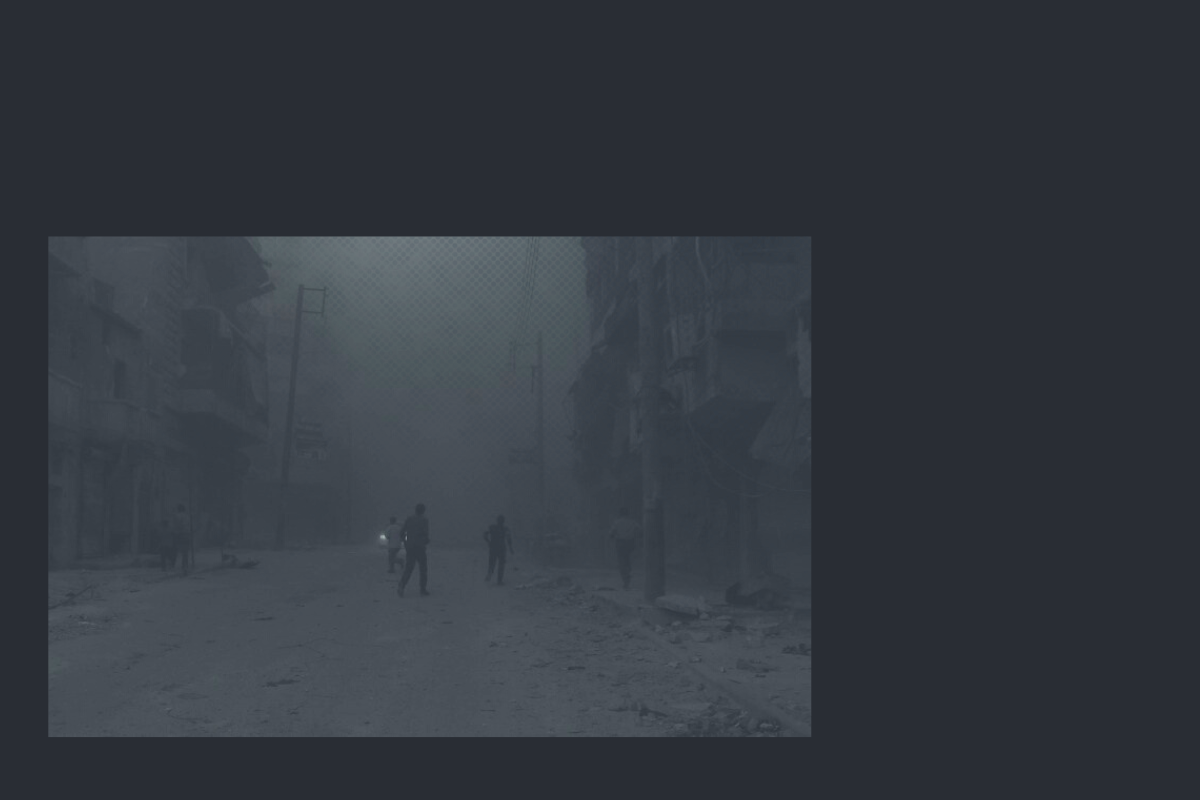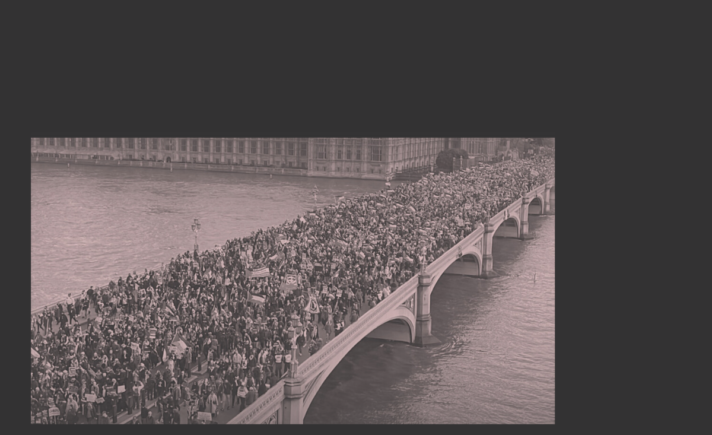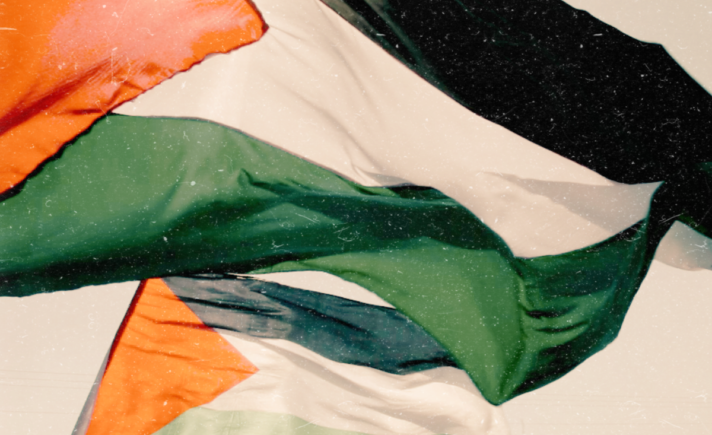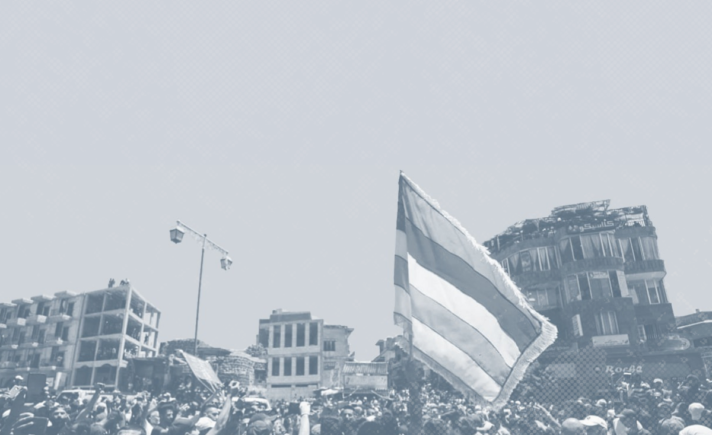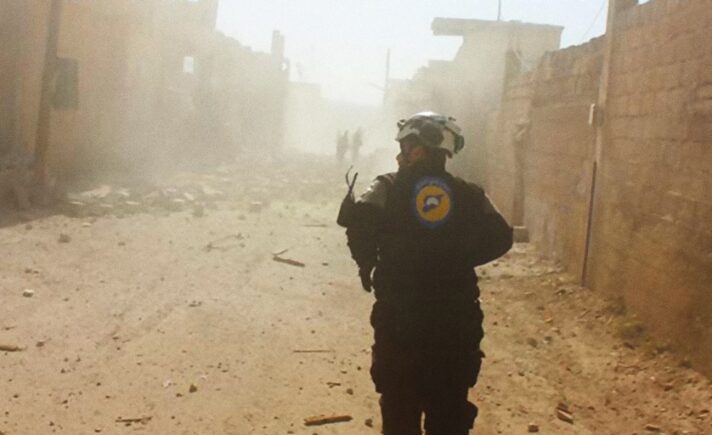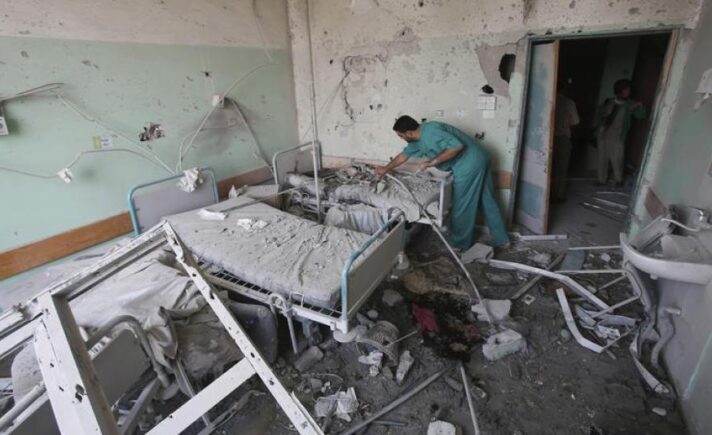Chemical attacks leave an indelible mark on those who witness them. Every day, their minds grapple with the haunting memory of a crime that suffocated its victims, but continues to choke their families, as well as witnesses and survivors, forever.
A decade has passed since the Ghouta chemical massacre on August 21, 2013. This was also the time when the Security Council adopted Resolution 2118, endorsing a Russian-American agreement that mandated Bashar al-Assad to surrender his chemical weapons in exchange for immunity. Over the years, the recollections of witnesses and the loved ones of the victims have been marred by harrowing ordeals: hundreds of air raids, extensive investigations, and a relentless campaign of denial which employed tactics such as witness intimidation, tampering with evidence, propaganda, and the deployment of false witnesses.
Recently, a friend reached out to request permission to share my contact information with a journalist covering the tenth anniversary of the Ghouta massacre. I declined the opportunity to speak as a witness about that fateful night and instead expressed my desire to shed light on the ten years that followed. During this period, the anguish felt by survivors and witnesses remained as suffocating as the sarin gas that engulfed us.
There exists a void in my recollection from 7:30 a.m. to 6 p.m. on August 21, 2013. It seems that what I witnessed was far more distressing than my mind can recall, causing it to protect itself through forgetfulness. Memory can be our armor against complacency with the perpetrators, but sometimes forgetting becomes our refuge against the daily torment of remembering.
In the summer of 2016, I wrote an article on the anniversary of the Ghouta chemical attack. In it, I detailed how journalists strive to convey the horrors of the massacre by making people recount personal stories, akin to how they resurrect memories of Ghouta’s dire conditions and its besiegement to present a vivid picture to their readers. Each inquiry they pose carves a fresh wound in the souls of witnesses: questions about the obvious, the conditions during the Ghouta siege, the insufficiency of equipment for handling chemical weapons, the shortage of electricity and staff available to document all the cases during the massacre.
At that time, the article remained unpublished. It was only after the Khan Shaykhun chemical attack eight months later that The New York Review agreed to feature it. Subsequently, I was contacted by an individual posing as a journalist who feigned interest in my article. However, her true intention was to exploit my memories and exacerbate my pain. She asked me to repeat my statements numerous times, sometimes citing poor recording quality as an excuse, and sometimes claiming that my ideas were unclear. Eventually, I discovered that the name she used belonged to someone else entirely.
This regime, along with all its supporters, exhibits sadistic tendencies, and there is no justification for its deployment of chemical weapons other than pure cruelty.
A decade later, we strive to safeguard our memories – memories that serve as a bastion of truth, a stepping stone on the arduous path to accountability. These memories are full of suffering, suffocation, and the sadism of the regime. They are memories that even oblivion can do nothing against.
The August 21, 2013 attack marked the 32nd chemical assault in Syria and the 10th in Ghouta. Since that pivotal event, I have served as a liaison for numerous witnesses collaborating with various investigative committees for the chemical attacks in Syria. At least five international investigation teams have investigated these attacks, which in total have numbered over 200 in the past decade.
Witnesses typically provide their testimonies once or twice, or sometimes even more if they are unlucky enough to be repeatedly sought after by multiple committees and their different approaches. Recalling the sensations of suffocation or describing the suffocation experienced by others is as painful as suffocation, if not more so. Descriptions of dismembered bodies can make you smell the scent of death once more.
Investigators, particularly those operating in Syria, understand that there is no room for error, given the relentless attacks by the Russian allies of the regime, targeting both individuals and institutions. Consequently, they exercise extreme caution, resulting in investigations that may appear needlessly rigorous, for the sake of clarity and veracity. This often leaves the witnesses reticent and most of the time filled with anger.
For doctors in major hospitals such as Idlib Central Hospital or Maarat al-Nu’man Hospital – both of which have received a significant number of chemical attack victims in northern Syria – providing testimony becomes a recurring duty. Many cases are transferred to these hospitals due to their advanced capabilities. Initially, doctors were eager to offer their testimony, inquiring about evidence collection processes. However, after years of investigations and minimal action from the international community, they began to question the purpose of gathering evidence.
Over the course of a decade, the witnesses’ concerns have shifted: instead of being suspicious about identities of investigation teams (as they have encountered infiltration attempts from the regime) they now question the practicality of all these investigations. As one doctor put it, “You know, Dr. Mohamad, if a child with a simple cold comes to my hospital seeking a prescription, that’s a million times better than leaving my shift to provide testimony. If they truly intended to take action, they wouldn’t be waiting for all these investigations.”
When the Russian veto in 2017 prevented the renewal of the mandate for the joint investigative mechanism established by the Security Council in 2015, the Organization for the Prohibition of Chemical Weapons (OPCW) formed an investigation and identification team – a groundbreaking development, considering that previous OPCW teams lacked the authority to identify perpetrators. Explaining to witnesses why they had to testify again about the same incident to another investigation team from the same organization proved to be a challenge.
Testimonies and investigations constitute a significant part of Syrians’ memory of the chemical attacks. Syria has been subjected to numerous investigations, not necessarily because the international community was deeply concerned, but rather as a diversion from taking concrete action. They distracted us with investigations.
The Joint Investigative Mechanism (JIM) issued seven reports, the Investigation and Identification Team (IIT) released three reports, and the International Commission of Inquiry for Syria (COI) published several reports, all condemning the regime for dozens of attacks. In contrast, the regime persisted in its denial and employed intimidation of witnesses as a core tactic within its policy of denial. Many witnesses who survived the Douma chemical attack on April 7, 2018, and were subsequently displaced to northern Syria, received chilling phone calls from well-known regime-affiliated individuals who indirectly threatened their relatives’ safety by revealing knowledge of where they lived.
Witnesses in regime-controlled areas have been coerced into bearing false witness, while those who were forced into displacement face threats to the well-being of their families residing in regime-controlled regions.
One witness, after I posted on Facebook about chemical weapons, confided to me: “Imagine, I summoned the courage to testify about a massacre that occurred in my hometown, and yet I hesitated to publicly ‘like’ your post because I knew that the Captagon gang was monitoring our Facebook accounts.” The witness went on to say: “You are aware that my family is frequently summoned to the security branches for questioning regarding any contact with me.”
Denial and intimidation constitute the most agonizing aspects of Syrians’ recollections of chemical attacks.
Forgetting does seem like an enticing solution to it all. My mind compelled me to forget those entire 11 hours due to the sheer horror they contained. Yet, perhaps forgetting is not the solution. On the contrary, witnesses and the families of victims hold fast to their memories, brimming with all their anguish. Assad scattered them across the globe, but they rallied together, forming a resilient collective from their diaspora. With it, they sharpen their memories, annually reminding the world of the crime that suffocated their families and continues to choke them daily. They do this to confront propaganda and intimidation with unwavering courage.
While forgetting may provide a respite for witnesses, it remains more agonizing than any memories. The hours I’ve forgotten weigh heavier than a whole decade of suffocation. Meanwhile, it appears easier for the world to forget, to believe that the chemical attacks never occurred, dismissing these horrors as illusions. It’s also easier for the Security Council members to rely on Russian vetoes, providing an excuse to avoid real action. Western countries may find it more convenient to employ sanctions as a form of accountability rather than pursuing justice against the perpetrators.
My friend, photographer Muhammad Badra, who contributed to documenting the Ghouta chemical attack in 2013, has this to say about the regime’s propaganda and its denial of chemical massacres: “They know that it’s impossible to fabricate a crime witnessed by thousands, just as it’s impossible to deny it. Yet, there will always be those who claim that man never landed on the moon and that the Earth is flat.”
The truth will remain stronger than denial; survivors of the chemical attacks will remain resilient in the face of intimidation; and the memory of the suffocation will endure, undefeated by forgetfulness and oblivion.


